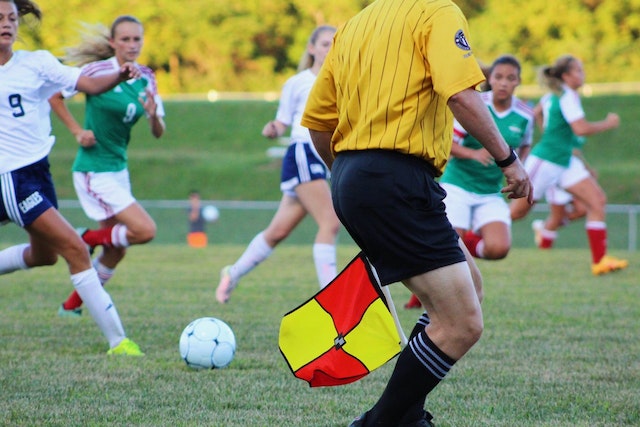The crisis in refereeing
Jaime ANDREU, Former head of the European Commission Sport Unit
and FIBA* National Referee Instructor. Member of the Sport and Citizenship Think Tank’s Scientific Committee.

The world of sports refereeing is experiencing an unprecedented crisis. The Covid 19 pandemic led to a huge loss of refereeing and umpiring staff all over the world, in every sport. According to data collected by the magazine Referee, the United States alone has lost between 30 and 35% of referees; similar figures have been advanced by various sport federations in Europe. Alarm bells are ringing, for the shortage of referees could lead to the cancellation of some competitions.
Reasons for the crisis
The pandemic only accelerated a situation already being discussed for several years. Fewer people were wanting to be referees at a time when the number of competitions was continuing to rise. There are two main reasons for this lack of interest in refereeing. One is that the fair-play attitude has diminished, particularly among coaches and parents. The other is the lack of appropriate management from sport federations when it comes to training and supporting referees, including new, young referees. It is therefore important to examine these two main reasons, in order to halt this loss and try to create a situation which will attract new recruits to refereeing.
The increase in unsporting behaviour has been exposed by Referee’s survey of sixteen thousand referees in the United States as being the most important factor in the decision to quit refereeing. The referees agree that they manage to control the players without too many problems. However, they denounce the increasingly aggressive and scornful attitude of parents and coaches. Public authorities and sporting organisations have launched awareness-raising campaigns to remove this problem, but the campaigns have few resources and have no impact on the people they are aimed at. On the contrary, on social media all kinds of messages inciting hatred and criticising referees are propagated, with the result that behaviour gets worse and people are radicalised, just as can be seen in the political sphere. It is not enough to say that it is just a minority, because it is this minority that puts off young referees and makes them give up refereeing.
The second main reason for referees to hang up their whistles for good is the lack of appropriate management from sport federations. A young person who goes into refereeing is someone who loves their sport, who is prepared to enjoy their favourite activity from another angle. Refereeing is not easy. It needs adequate physical preparation, training in the rules of the game and the technical side of the sport, and also psychological preparation, because being a referee is similar to being a facilitator in human resources. Yet most federations sign up referees, give them a bit of superficial training and turn them out on to the ground without the necessary preparation. Afterwards, the federations lack the resources needed to ensure that referees receive the technical and psychological support which they need when difficulties arise. What is the result? As soon as the young referee is faced with aggression from parents or contempt from coaches and managers, he or she takes fright, hesitates and ends up quitting refereeing. The pay is not enough to keep people in refereeing, because of the shocking abuse they have to suffer.
This means that they need better management, because a referee who feels well-supported by the federation will be able to overcome the problems arising from the lack of sporting attitude more easily.
Investing in refereeing
Federations need to give more attention to the referee issue. Preoccupied with the management of national teams – now one of the biggest sources of revenue – the majority of them forget that one of the main tasks for federations is to manage a team of well-trained, competent referees. Quality refereeing will help to reinforce sporting discipline. But the federations and their directors are tight-fisted when it comes to increasing the budget devoted to refereeing. Federations need to aim to gradually improve the professionalism of managers in charge of referees. These activities are often left to the voluntary sector which has already reached its limits. The lawyer Maurice Duverger held that the budget represents the concrete form of an organisation’s policy priorities. We agree with this statement and that is why it is important to encourage sport federations to invest in refereeing: an investment that will bring benefits to all the members.
*International Basketball Federation










 MEMBERSHIP
MEMBERSHIP CONTACT
CONTACT FACEBOOK
FACEBOOK